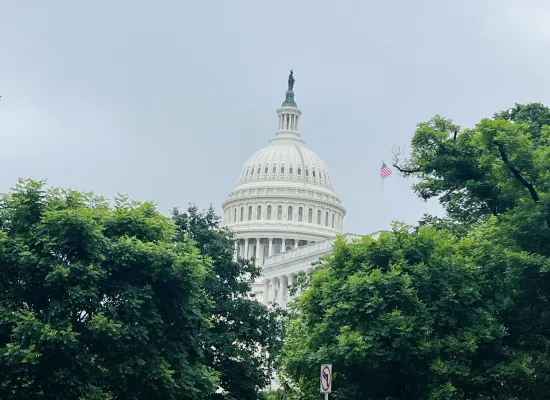
California SB 966 State Legislative Update

Sponsor: Sen. Scott Wiener (D-San Francisco)
Status: Passed both chambers (8/29/2024)
Last week, the California legislature passed one of the most significant PBM reform bills of the year, Senate Bill (SB) 966. This bill marks a major shift in how pharmacy benefit managers (PBMs) are regulated in the state, with the oversight moving to a new division within the Department of Insurance.
SB 966 introduces transparency requirements, such as annual reports PBMs must submit, and ensures that all rebates are passed through to health plans. It also establishes new protections for patients, including limiting their drug cost-sharing to the actual amount paid. Importantly, this bill lays the groundwork for regulating PBM utilization management practices and addressing unfair trade practices like patient steering and retroactive reductions in pharmacy reimbursements.
Below are additional details on these provisions, which could have significant implications for our work in managed care pharmacy.
- Licensing: This bill would require PBMs to register with the Department of Insurance starting January 1, 2027. The bill also directs the Department of Insurance to issue regulations regarding group purchasing organizations and their contracts with PBMs. Currently, PBMs in the state are regulated by the Department of Managed Health Care and do not have to obtain a license to operate in the state.
- Transparency: Under the bill, PBMs must file two annual reports to the Department of Insurance, including product benefits specific to the purchaser and information about the PBM's contracts and revenues. The reports require detailed information on the 50 costliest drugs, the 50 most frequently prescribed drugs, and the 50 highest revenue-producing drugs processed through the plan’s prescription drug benefit each year, including the pharmacy type used to fill the prescription, list prices and price concessions, and both aggregate and deidentified claims level information. PBMs would be required to report all types of fees they receive for a given drug and detail how the fees are calculated. The bill stipulates that these reports are not public information, however the Department of Insurance will issue a report to the legislature each year with an aggregate report.
- Income: The bill requires PBM contracts with health plans to use a pass-through pricing model starting January 1, 2026. PBMs would be required to transmit 100% of all price concessions received for a drug to the health plan, for the express purpose of offsetting premiums, cost-sharing, or deductibles. Beginning January 1, 2025, the bill would prohibit a health care service contract that provides prescription drug coverage from calculating an enrollee's cost-sharing at an amount that exceeds the actual rate paid for the drug. The bill also requires health care service plans to report the aggregate amount of rebates received for each drug to the Department of Insurance.
- Duty of care: The bill establishes a duty of care on the part of the PBM for the enrollees, insureds, subscribers, and policyholders represented by the plans with whom the PBM contracts. The bill prohibits a PBM from unreasonably obstructing or interfering with a patient’s right to timely access to a prescription drug or device, except as permitted under existing law (may allow for additional regulations from the Department of Insurance related to utilization management practices).
- Unfair trade practices: Finally, the bill targets unfair market practices that impact pharmacies and patients. The bill includes any willing provider requirement for pharmacy network contracts. It prohibits reimbursing unaffiliated in-network pharmacies at a lower rate than affiliated pharmacies and steering patients to affiliated pharmacies. The bill would also prohibit PBMs from imposing standards on 340B contract pharmacies that are different from other network pharmacies. PBMs would also be prevented from requiring pharmacist or pharmacy accreditation standards inconsistent with, more stringent than, or in addition to federal and state requirements. The bill prohibits retroactive clawbacks and reductions in pharmacy service payments more than 90 days after the claim was adjudicated, including negative DIR, brand-effective rates, or generic-effective rates.
- Civil penalties: The bill establishes that failure to comply with these provisions may result in civil penalties that include fines or removal of a PBM’s license to operate in the state.
Throughout the legislative process, several notable amendments were made to the bill, which have diluted the impact of the final legislation:
- Spread pricing: The original version of the bill would have banned spread pricing, while the Senate-passed version simply required PBMs to offer plans a contract that did not utilize spread pricing. The Assembly-passed version removed the spread pricing provision entirely.
- Taft-Hartley plans: The Assembly-passed version was also amended to exclude health plans established under collective bargaining agreements, known as Taft-Hartley plans. This was negotiated after several prominent labor unions in the state, including the Teamsters, Pipefitters, and Electrical Workers, raised concerns that it would increase the cost of health insurance for organized labor.
- Delays in effective dates: The Assembly pushed the effective dates for the transparency requirements back by several years. PBMs are not required to apply for a license until January 1, 2027, and they do not have to file their two annual reports until July 1, 2027. The Department of Insurance’s reports on PBMs impacts on drug costs and pharmacy operations are not due until January 1, 2029.
Next steps: Governor Newsom has until September 30 to veto any pending legislation, including SB 966. While his stance on this specific bill remains unclear, Governor Newsom has previously vetoed PBM reform and drug pricing legislation, citing concerns over potential unintended consequences.
- In 2021, Gov. Newsom vetoed SB 524, which would have prohibited patient steering. In his veto message, the governor expressed concern that the bill lacked clarity and could lead to unintended consequences if health plans cannot coordinate care and contain pharmaceutical costs.
- This term, Gov. Newsom vetoed SB 90, which would have capped patient cost-sharing for insulin products at $35 for a 30-day supply. In his veto message, Gov. Newsom said that copay caps do not bring down the long-term costs of drugs for patients as insurers will shift costs to consumers via higher premiums.
- Contrary evidence includes Gov. Newsom signing SB 786, a bill from earlier this term that banned certain discriminatory actions by PBMs against 340B covered entities.
Featured News & Resources
See Full CalendarAward Applications Open
AMCP eLearning Day: Nexus Encore
AMCP 2026 Registration Opens
Upcoming Events
AMCP offers a wide variety of educational opportunities, from events and webinars to online training.







